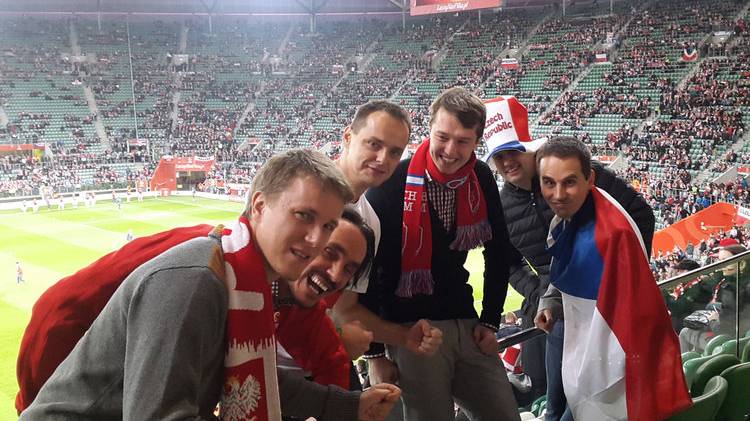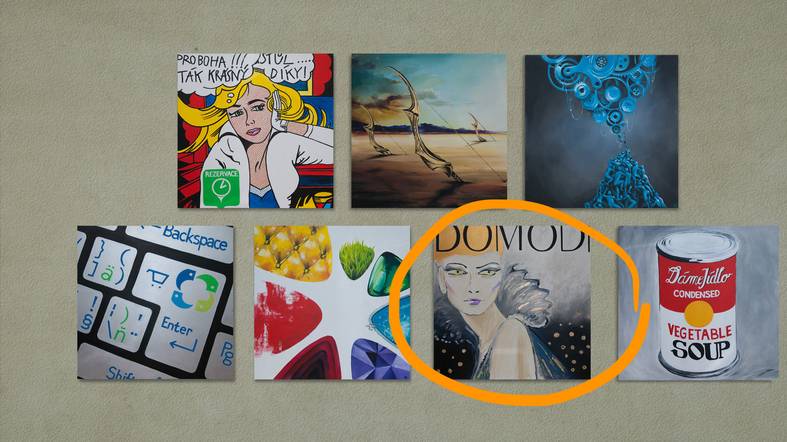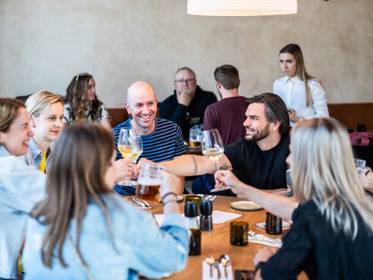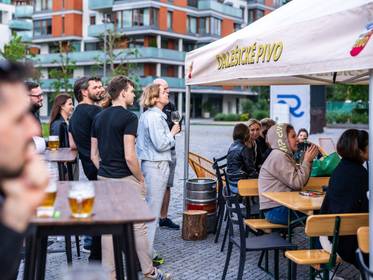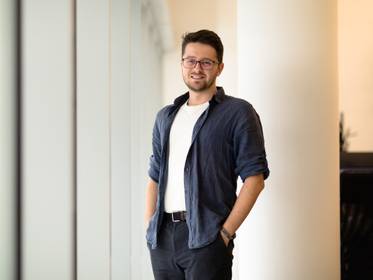Our gamble on the notion of ‘buying with our eyes’

Michal Jirák
This is the story of the fashion search engine Domodi, into which we invested back in 2012 shortly after its founding. Fast-forward to 2018 and the Polish media group GWP completes the purchase of Domodi in a 60 million Euro valuation.
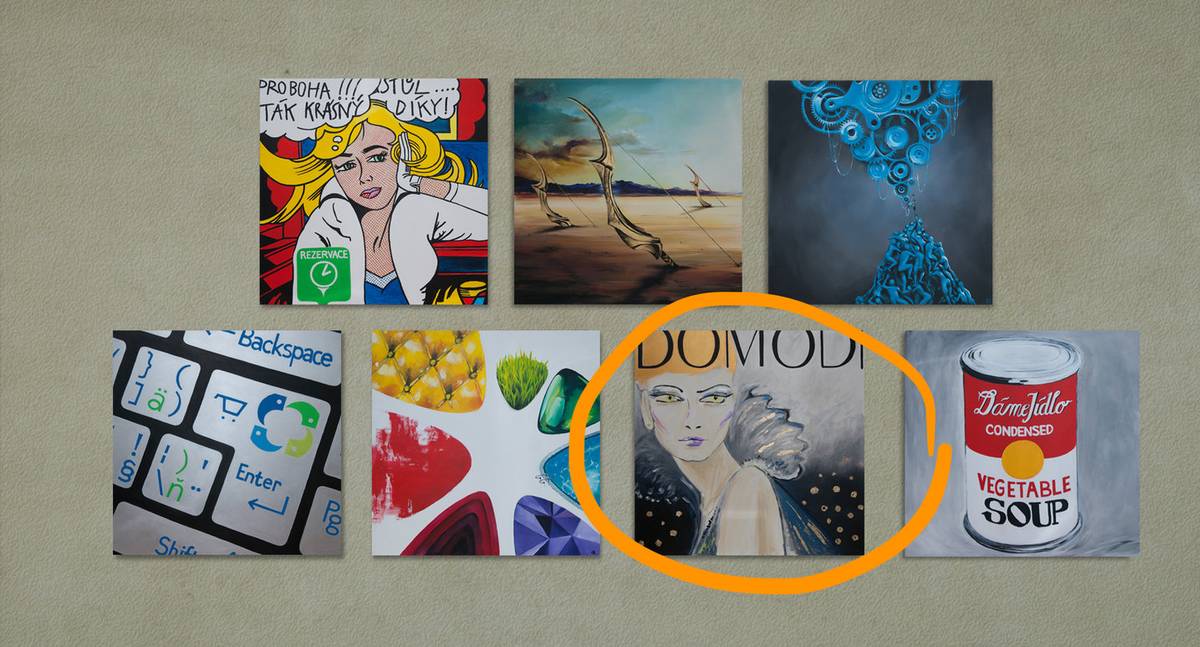
LONG STORY SHORT
- The media group GWP purchased the remaining shares in Domodi.pl from Miton and Domodi’s founders in a transaction valuing Domodi at approximately 60 million Euro.
- Together with Domodi’s founders, Miton continues to develop a similar fashion search engine in 11 countries under the label Glami.
- Bonus: Five trends we have observed in our six years of working in fashion e-commerce.
SHORT STORY LONG
We invested in Domodi.pl in 2012, shortly after the search engine’s founding, at a time when its business model was quite uncertain. Inspired partly by the community shopping website Polyvor (RIP 2018), Domodi was launched by several Polish e-commerce heavyweights under the leadership of Krzysztof Wierzbicki, whom we knew well.
Krzyszof Wierzbicki, Lukasz Zych and Marcin Chwalik haven’t always supported the same sports teams as we at Miton, but we could always find common ground in e-commerce.
While Krzyszof Wierzbicki, Lukasz Zych and Marcin Chwalik haven’t always supported the same sports teams as we at Miton, it’s never been a problem for us to find common ground in e-commerce. How big is the fashion market? Our answer has always been “big enough”. Why count when it concerns the largest and the fastest growing e-commerce industry, on the order of some 2 to 3 billion USD globally.
What has always been key for us, is that people discover, choose and buy fashion differently than other types of goods. And we felt that not enough had been done in the fastest growing e-commerce sector, so together we looked for a way to make it easier for people to discover their favourites in what is a highly fragmented industry.
The idea of ‘buying with our eyes’ became one of our investment propositions, and Domodi was our wager in this e-commerce trend – akin to Bonami in the area of home decor. In the US you’d classify this as a ‘non-Amazon’ approach; here in Czechia as ‘non-Heureka’. In this line of e-commerce, images matter more than prices.
Because we like to experiment on more than one front, in October 2013 we launched Glami.cz – a similar concept with a different platform and a different team. Domodi’s founders came for the ride, and Tomáš Hodboď, interested in doing something new after Heureka, took up the reins. We benefited from independent development, from two ways of looking at things, and from the sharing of know-how.
"Maximize the number of experiments you can do per given unit of time."
— Jeff Bezos
Today startups tend to miss out on this kind of open sharing – everyone is aiming for global expansion from day one, and so you end up with teams in different countries dealing with exactly the same problems, unwilling to share key information because tomorrow they could be each other’s competitors. And yet, there is no better inspiration than the knowledge that what you are trying to do is working elsewhere.
The Domodi product and its operating principles have changed a lot with time, but the founding idea of making fashion discovery possible for anyone anywhere has remained the same. The business models guiding Domodi and Glami have grown more similar, with successes in one platform transferred to the other. The synergy has helped Domodi.pl to skyrocket in Poland and Glami to expand throughout Europe.
The Polish media group GWP first invested in Domodi in 2014, when it turned its attention to e-commerce in an effort to lower dependence on media revenues. They were on board with our vision about the strong potential of online fashion commerce, and focused on strengthening Domodi’s position in Poland. Our attention, in the meantime, was drawn more and more towards other foreign markets.
Under the continued leadership of its founders, Domodi grew into the most important source of fashion inspiration in Poland and the largest source of orders for most online sellers. Today Domodi employs more than 100 staff in Wroclaw under the direction of the new CEO Adam Plona.
According to plan, last week GWP purchased from Miton and from the founders the remaining shares in Domodi in a 60 million Euro valuation. This concluded the gradual acquisition of the company.
Here at Miton, working together with Domodi’s founders, we continue to focus on expanding the Glami brand (named Stileo in Italy and Spain). The current coverage of 11 countries will soon be expanded by a few more in Europe, and next year we plan to open a new continent. We are experimenting with TV ads, better size selection, quality in fashion, sustainable brands, local designers and more.
And of course we are always looking for skilled and motivated people who would like to take part in continuing this story.
IN THE MEANTIME …
Our guiding premise about fashion discovery remains the same even after six years of existence. But the fashion market keeps moving, so it’s good to follow its journey.
- People primarily use mobile devices to discover fashion, and they are also using them more when placing orders. This means that today everyone has to work with cross-device strategies.
- All big brands are now selling online. They have gone through their labour pains and are now competing in the omnichannel environment with digitally native retailers. Inditex is now selling 10% online, H&M 12% and Next 40+%.
- Mass brands like Adidas want to sell directly to customers! How many of us have bought Adidas shoes directly from the company? This previously inconceivable approach to undermining retailers is today the company’s main growth strategy.
- New, highly specialised brands are selling exclusively to customers, resulting in further market fragmentation – it’s the arrival of D2C.
- Customers’ growing willingness to shop internationally, combined with greater push from e-commerce retailers to localise in as many countries as possible, has resulted in an essentially endless product range. Statements like “71% of Europeans have placed orders abroad” and “By 2020, Zara will enable anyone in the world to make a purchase” best reflect the fact that local competition is today almost non-existent.
- Amazon never sleeps …
Share
Of further interest
What's New: Spring/Summer 2024
A lot has happened. Rohlik continues its European journey, we've secured several new investments (mostly in crypto), and published articles and podcasts. Let's get right to it.
Photo gallery from hockey founders dinner 2024
We planned the dinner for the Czech Republic vs. Canada match. Fortunately, the Karlín venue HolKa had prepared a garden with a screen. Although the game didn't go well for the Czech Republic, it’s irrelevant history given the overall outcome :) How did the evening turn out? Check out the photos.
New addition to Miton C: Filip Široký
What will 2024 look like in crypto? The team at our web3 fund Miton C is optimistic, and it’s growing too. We're bolstering our ranks with Filip Široký, who joins us as a Research Partner.
